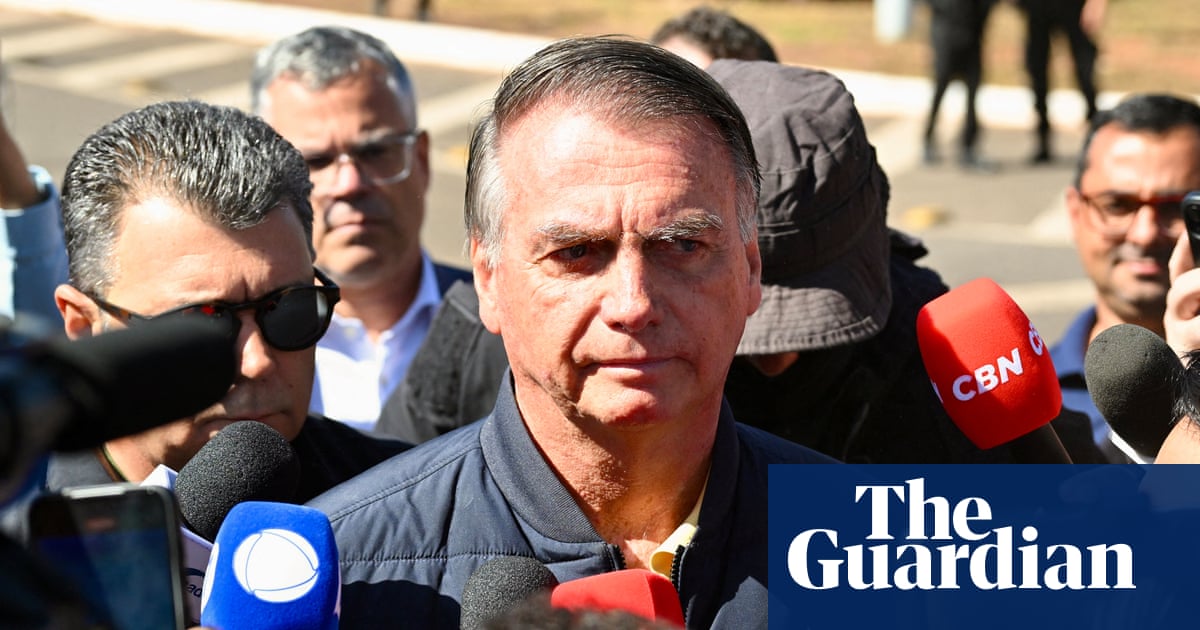U.S. Visa Stripping of Brazilian Supreme Court Judges
Recent revelations have ignited a major diplomatic conflict between the United States and Brazil, centering around U.S. Secretary of State Marco Rubio’s decision to revoke visas for eight of Brazil’s eleven Supreme Court judges. This unprecedented action coincides with political turbulence in Brazil, particularly regarding allegations against former President Jair Bolsonaro related to an attempted coup.
Bolsonaro’s Legal Troubles
Jair Bolsonaro, a far-right populist and ally of Donald Trump, is currently facing significant legal challenges. After losing the 2022 election to left-leaning rival Luiz Inácio Lula da Silva, Bolsonaro is accused of orchestrating a violent plot to maintain power. His trial is expected to conclude in the coming weeks, with potential convictions that may lead to a staggering 43-year prison sentence.
Escalation from the White House
As the judicial proceedings against Bolsonaro intensify, Trump has reportedly escalated his support for his former ally. On July 9, he announced a controversial plan to impose tariffs of 50% on all imports from Brazil, citing Bolsonaro’s persecution as a primary catalyst. Lula responded vehemently, labeling the tariffs as “unacceptable blackmail,” reflecting deepening nationalist sentiments in Brazil.
Visa Revocations and Judicial Independence
In a bid to support Bolsonaro, Rubio’s announcement included the revocation of visas for key Supreme Court judges, notably Alexandre de Moraes, who is leading the investigation against Bolsonaro. Other affected judges included prominent legal figures such as Luís Roberto Barroso and Cármen Lúcia Antunes Rocha. Analysts speculate that this move constitutes a direct interference in Brazil’s judicial processes, igniting further outrage from the Brazilian government.
Lula’s Strong Response
Lula firmly criticized the U.S. actions, describing them as “arbitrary” and undermining Brazil’s sovereignty. He emphasized that no external pressures would deter his administration from upholding the democratic principles of the nation. His comments underscore a broader concern regarding the implications of foreign intervention in domestic matters.
Reactions from the U.S. and Brazil
The political landscape in the U.S. has also reacted strongly. Trump strategist Alex Bruesewitz praised the revocations, labeling Bolsonaro a victim of a “political witch hunt.” Meanwhile, Bolsonaro’s son, Eduardo, expressed gratitude to Rubio, reinforcing his family’s ties to the U.S. political right.
Domestic Backlash and Nationalism
Despite support from far-right factions, many Brazilians are alarmed by Trump’s interventions, particularly given Bolsonaro’s alleged role in inciting the January 8 riots in Brasília. Lula’s administration has harnessed this political climate, casting itself as a protector of Brazilian sovereignty. Critics, even on the right, decry the U.S. tactics, viewing them as an affront to Brazil’s national dignity and autonomy.
The Impact of Tariffs on Brazilian Agribusiness
The proposed tariffs seem to have backfired, allowing Lula to emerge as a staunch defender of Brazilian interests. This position has bolstered his approval ratings amid growing public discontent. The economic ramifications threaten sectors crucial to Bolsonaro’s base, particularly agribusiness regions that voted for him. Political commentators have suggested that the scale of the tariffs was unforeseen by the Bolsonaro camp and could provoke more frustration among his supporters.
Bolsonaro Family’s Reactions
In light of the tariffs, Bolsonaro’s senator son, Flávio, briefly called for a modification of Trump’s stance, suggesting that individual sanctions could be a more acceptable path. However, he quickly removed this post, reflecting the internal pressure the family faces as they navigate this foreign policy crisis.
This evolving situation highlights the complex interplay of international diplomacy, legal accountability, and domestic political dynamics, generating profound implications for Brazil’s future and its role on the global stage.


